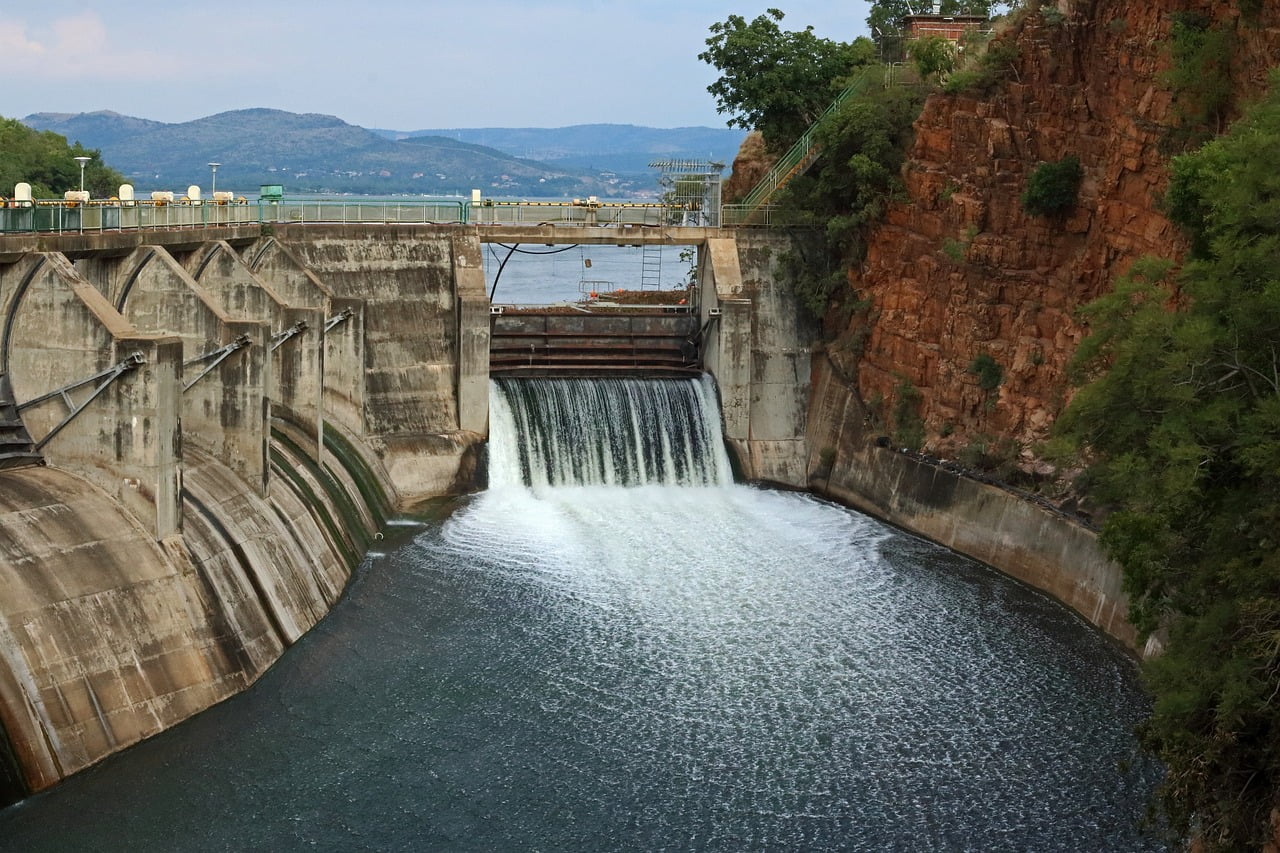Africa
The Grand Ethiopian Renaissance Dam (GERD): A Lesson on Leadership and Courage -By Abachi Ungbo
Africa saw the possibility of looking inwards in financing projects; while it imposes financial strain, it enables independence by precluding the tall and restrictive conditions that accompany external funding. The GERD is a monument to strategic foresight. It reinforces the importance of visionary leadership in shaping the destiny of a nation and rallying people around a development agenda.

Ethiopia inaugurated the Grand Ethiopian Renaissance Dam (GERD) on the 9th of September, which was, to all intents and purposes, an epochal event. Built across the Nile, it is the largest hydroelectric dam in Africa, with the capacity to supply a whopping 6000 MW of electricity to the energy-starved nation. The country is expected to earn billions from sales of electricity across the border to Kenya, Djibouti, South Sudan, Sudan, and Eritrea. It is betting on the GERD to transform its economy and invigorate its agricultural sector through irrigation.
The Nile is composed primarily of two tributaries: the White and Blue Nile, with both converging at Sudan’s capital, Khartoum, before flowing to Egypt and then the Mediterranean. Ethiopia is upstream where the Blue Nile flows. Other upstream sources are from East Africa, where the White Nile originates. The amount of water from the White Nile pales in comparison with the Blue Nile, which accounts for 80-85% of the River Nile.
The massive hydroelectric infrastructure was birthed amidst vociferous opposition from the downstream countries—Egypt and Sudan. Egypt has always been apoplectic over the idea of a dam. The Nile is its blood. The preponderance of its water resources is derived from the Nile, and about 97% of the Egyptian population resides along the Nile River, where some of the fertile farmland exists. It is said that a 2% reduction in Nile water will lead to the loss of about 200,000 acres of farmland, which means the loss of about one million jobs.
Rising temperatures are inducing evaporation, increasing the requirement for more water to grow crops in the Nile and its canals. In light of this, the country has significantly cut back on areas used for water-consuming crops like rice in an attempt to save a huge amount of water. There is also concern for the Aswan Dam, Egypt’s hydroelectric dam, which depends on the Nile.
Egypt is relying on a colonial-era treaty and a 1959 agreement with Sudan, which ceded the bulk of the Nile water to Egypt without the consent of the upstream countries. Therefore, Ethiopia believes the old agreement is not binding on them. Sudan has its grievances too. Notwithstanding, it stands to benefit immensely. The GERD will help provide needed electricity, manage floods, and reduce alluvium, ensuring large hectares of land become available for cultivation through irrigation.
It is often said that war in the 21st century will be fought over water. Nowhere is this assertion truer than on the Nile. In fact, in 2019, the International Crisis Group—an organization that works to prevent wars—warned of the possibility of armed conflict. The Egyptians were already talking tough before opting for diplomacy. To the Ethiopians, the Nile is not only a valuable resource that must be harnessed but also an exercise of their sovereign right. It is a fast-growing economy with a growing population.
The scale and cost of the GERD were a huge test of the resolve of the Ethiopians, especially with international funding proving difficult to come by. Since Emperor Haile Selassie, Ethiopian leaders have flirted with the idea of harnessing the Nile’s upstream power. However, it was the former Prime Minister, Meles Zenawi, who decided to take the plunge. He was imbued with strong passion, unflagging conviction, and the courage to walk the talk in delivering what merely existed in the realm of dreams and aspirations.
During the laying of the foundation stone in 2011, Meles asserted that “no matter how poor we are, in the Ethiopian traditions of resolve, the Ethiopian people will pay any sacrifice.” Ethiopia was compelled to have recourse to domestic financing, which was quite innovative. Ethiopians from all walks of life contributed through bonds, salary deductions, and donations from the diaspora. Patriotism and unity were whipped up to muster citizens’ support as national interest bridged the gaping political and ethnic chasm.
Meles Zenawi demonstrated a brand of leadership that has continued to elude Africa. He walked right into a huge storm of opposition without flinching, unscathed by criticisms and unfazed by the cold shoulder from international lending institutions. He proved that, as a leader, taking tough and unpopular decisions is sometimes necessary. The delivery is what matters. In the case of the GERD, it came to a successful conclusion, which has now attracted effusive praise and ignited national pride.
Interestingly, Meles evinced an inspiring power of persuasion—a quality that enabled him to logically and clearly articulate the vision and convince the people to own the project. It basically brought to the fore the importance of inclusive and people-centered governance.
He didn’t see the turbines spin owing to his death in 2012, a year after he laid the foundation stone. Nonetheless, the seed he planted didn’t die. His successors watered it. They refined the plans and kept driving the construction forward. The continuity of the project was essentially a result of the huge buy-in by everyone.
Through him, Africa saw the possibility of looking inwards in financing projects; while it imposes financial strain, it enables independence by precluding the tall and restrictive conditions that accompany external funding. The GERD is a monument to strategic foresight. It reinforces the importance of visionary leadership in shaping the destiny of a nation and rallying people around a development agenda.
Abachi Ungbo
abachi007@yahoo.com

























